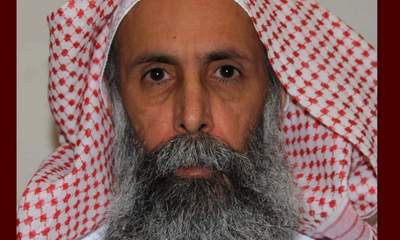Saudi Arabia’s Killing Of Leading Shiite Cleric And 46 Others Sparks Outcry
A statement released by the Saudi interior ministry stated that the 47 who were executed had been found guilty of “adopting the radical “takfiri” ideology, joining “terrorist organisations” and implementing various ‘criminal plots.'” No details were given on the methods used to execute the convicted, but it is reported that swords are often used in Saudi executions. Among them was Faris Al Showail, a leading ideologue in the Saudi branch of al Qaeda. Shuwail was arrested in 2004.
They were also on an interior ministry list that excluded the name of Mohammed al-Nimr’s own son, Ali, who was 17 when he was arrested following the protests and also faces a death sentence.
Among those executed, all were said to be Saudi Arabian citizens with the exception of one Chadian and one Egyptian national.
Saudi Arabia carried out at least 157 executions in 2015, with beheadings reaching their highest level in the kingdom in two decades, according to human rights groups.
“The execution of a prominent minority representative testifies to a panic that makes a mockery of the government’s argument that (Saudi Arabia) is a “stability partner”, said the Greens foreign affairs spokesman Omid Nouripour, born in Iran.
Haitham al-Jubouri, another Shiite lawmaker, said “the execution of Mujahid Sheikh Nimr al-Nimr by the Saudi terrorist regime represents the beginning of the end of the Saud (ruling family)”.
However many Sunni al-Qaeda men have also just lost their heads – literally – to Saudi executioners, the question will be asked in both Washington and European capitals: are the Saudis trying to destroy the Iranian nuclear agreement by forcing their Western allies to support even these latest outrages?
“We are completely confident with what we’re doing and we believe in it and do not care how others view our procedures, whether on justice or implementation of sentences”, he said.
Justice ministry spokesman Mansur al-Qafari said “interference in the kingdom’s judiciary is unacceptable”.
Human rights groups have consistently attacked the kingdom’s judicial process as unfair, pointing to accusations that confessions have been secured under torture and that defendants in court have been denied access to lawyers.
Al-Nimr had been a vocal critic of Bahrain’s Sunni-led monarchy, which harshly suppressed the 2011 Shiite-led protests.
Riyadh this week opened its embassy in Iraq, which had been closed in 1990 after the Iraqi invasion of Kuwait.
Saudi Arabia’s ruling Al Saud family has grown increasingly nervous in recent years as Middle East turmoil, especially in Syria and Iraq, has empowered Sunni militants seeking to bring it down and given room to Shi’ite Iran to spread its influence.
“There will be negative reactions from within the kingdom and overseas”.
“No one should have any reaction outside this peaceful framework”.
Larijani, who is visiting the southern province of Bushehr, made the remark after hearing the news of execution of 47 poeple in Saudi Arabia on Saturday.
“The recompense of those who wage war against Allah and his messenger and do mischief in the land is only that they shall be killed or crucified”, read a statement from Riyadh’s Interior Ministry, citing the Quran.
Nimr, 56, promoted peaceful protest among his followers. “It will also increase tensions inside Saudi Arabia because it gives the Shiite community new grievances and symbols to rally around within the country”.








